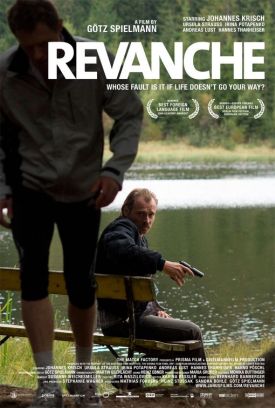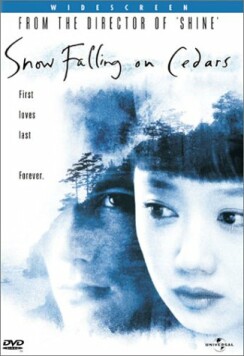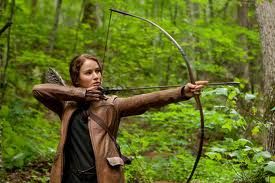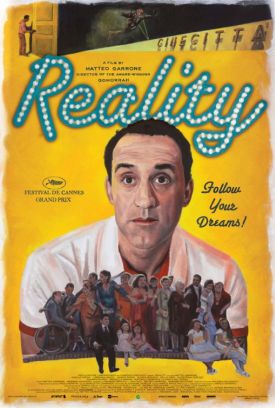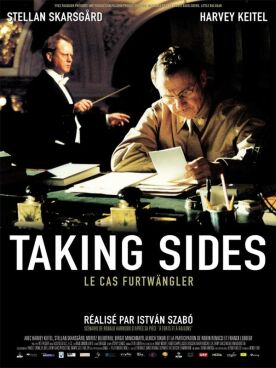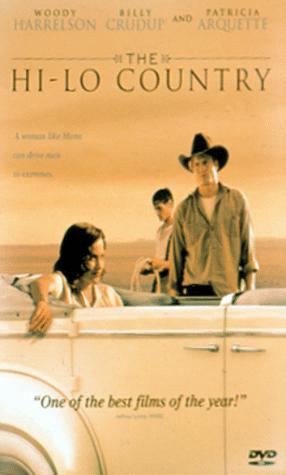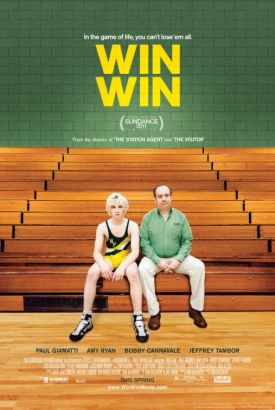Revanche
Though I don’t quite know why, I’ve been having some trouble defining for myself just what it was I so much enjoyed about Revanche, by the Austrian director Götz Spielmann, a movie which A.O. Scott of The New York Times calls “a tidy, glum thriller that aims for a tone of sour humanism, perched just on the near edge of cynical despair.” This judgment seems to me to be completely wrong, wrong in every particular. At least on the basis of its immediate effect, I would say that the film is neither tidy, glum nor a thriller, except in the sense that any movie with a plot can be called a thriller. Nowadays, even thrillers often don’t bother with plots. Nobody seems to mind being whisked from one exciting moment to the next without bothering about the connections between them. This movie is therefore old-fashioned in having a plot, and a well-developed one, but the effect it produces is more thoughtful than thrilling.
And then there’s “sour humanism,” which corresponds to nothing I could see in the picture — which, if anything, has a powerfully theistic subtext, though people are likely to disagree about what it means. Whatever that is, however, it cannot be anything close to cynical despair. Rather the opposite, in fact. To me, the movie seems to have an almost Wordsworthian reverence and awe before the moral force of nature. How is it possible for Mr Scott to be so wrong, I wonder? Maybe I’m the one who is missing something. Or maybe I’m just going overboard in my admiration for the picture because I’m so delighted to see any example of old-fashioned story-telling on film, now that this has become a dying art in Hollywood.
The story in this case is that of Alex (Johannes Krisch), an ex-con who is working in a Viennese brothel as a part-time bouncer and general dogsbody. Secretly, he is also the lover of one of the prostitutes, the beautiful coke-addicted Ukrainian, Tamara (Irina Potapenko). Both of them dream of escape from the brothel, and Alex has a friend who might allow him to buy a partnership in a bar in Ibiza if he can raise 80,000 Euros. On a visit to his peasant grandfather in the Austrian countryside, he spots a small-town bank that looks as if it will be easy to rob. Despite her misgivings, Tamara is persuaded that this is, indeed, the ticket out of bondage for both them, and together they engineer her escape from the film’s sinister version of Mistress Overdone, Konecny (Hanno Pöschl) and plan their bank job. “Nothing can go wrong,” Alex assures her. “Only idiots without a plan get caught.”
Meanwhile, as they say, we are introduced to a parallel story involving a sensitive but unlucky policeman named Robert (Andreas Lust) who suffers from a tortured conscience and is unable to conceive with his wife, Susanne (Ursula Strauss). She is a kindly neighbor to Alex’s grandfather, the peasant known as Old Hausner (Johannes Thanheiser), whom she visits at his remote farm once a week to take him to church. To tell any more of the plot would be to give away too much, but equally absorbing is the nicely worked-out thematic contrast between the elemental world of the countryside and the brittle pleasures and moral corruption of the city. The tone is set by Old Hausner who, in discussing his grandson with Susanne, tells her that “He lives in the city. When you live in the city, you end up arrogant or a scoundrel. He’s a scoundrel.”
Well, he is and he isn’t. At about the same time the brothel owner, Konecny, is telling Alex that his problem is that he’s too soft. People can tell, he says, and they’ll know at once that he doesn’t belong in the company of the hard men it takes to run a business like theirs. There is truth in what he says, too, though we’re kept guessing as to just how much. The one thing we do know is that Alex is a bit of a sentimentalist, and his attachment to Tamara borders on the uxorious. Yet it is he on whom the “revenge” of the title — the French name suggests that Austrians think of this as a French phenomenon, just as we might think it a Sicilian one — devolves, and the suspense of the film is generated by our doubts as to whether or not in the end he will be a hard-enough man to take it. Or if he ought to be.
See if you can work it out for yourself from the fact that the second half of the film takes place mostly on Grandfather Hausner’s farm as Alex busies himself with sawing firewood on a vicious-looking bandsaw and then splitting it with a hatchet in long takes that are almost maddeningly leisurely, as well as suggestive. Meanwhile, grandpa is talking about the apple crop, playing Ländler on an ancient accordion for Susanne’s benefit and looking forward to the time, not far off now, he says, when he will be reunited with his late wife in the afterlife. The rhythms of country life are both gentle and reassuring and at the same time terrifyingly close to a kind of savagery that is never very far beneath the surface. The delicacy with which Herr Spielmann teases out the antithesis between these two tendencies really is almost thriller-like, and their resolution is so satisfying as to be even kind of tidy. But I am still amazed by anyone who could claim to find the movie either glum, sour or cynical.
Discover more from James Bowman
Subscribe to get the latest posts to your email.

